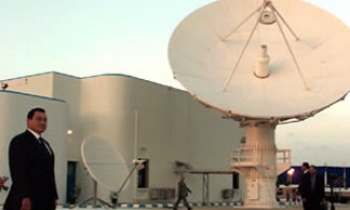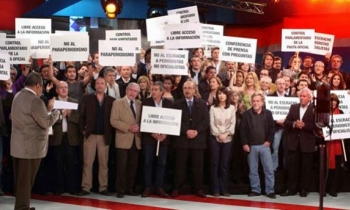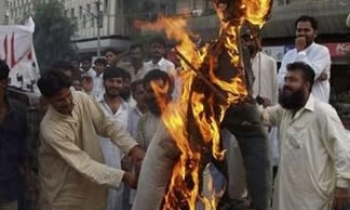Angry demonstrations in the streets. Official protests to European governments. Boycotts of Danish goods. Death threats against journalists. Over what? Twelve cartoons in a Danish newspaper.
Whether or not you agree with decision by Jyllands-Posten to publish the cartoons of the Prophet Mohammed, the reaction in the Islamic world has been far out of scale to any offence given. In the Gaza Strip, Palestinian gunmen besieged the offices of the European Union. In Jakarta, Muslim activists protested outside the embassy of Denmark and burned a Danish flag. In Pakistan, mobs of students shouted, "Death to Denmark."
Even more disturbing has been the reaction of governments, several of which have recalled their ambassadors or registered other diplomatic protests. Seventeen Arab countries have called on Denmark's government to punish the newspaper, an absurd thing to ask of a democratic country that guarantees free speech.
The uproar underlines an alarming tendency in Islamic societies to lash out at the West at the slightest provocation. When a few simple drawings, however controversial, can trigger outrage from Cairo to Kuala Lumpur, it is clear that something is askew in the psyche of a civilization. To put it plainly, the Islamic world has a chip on its shoulder.
It is commonplace in the Islamic countries to blame the West for nearly everything that goes wrong, from the Israeli occupation of the West Bank to the wealth gap between Muslim and Western countries. Anti-Americanism is rife, anti-Semitism all too common. When Iran's President called the Holocaust a myth, many people in Arab countries quietly nodded in agreement. Bernard Lewis, a British scholar of Islamic history, calls this "a twilight world of neurotic fantasies, conspiracy theories, scapegoating and so on."
In truth, most of the Islamic world's problems -- from economic stagnation to political paralysis, from the oppression of women to the poor level of education -- are homegrown. By and large, these societies have failed to come to grips with the modern world and as a result have fallen far behind much of the rest of the planet. Out of this failure to keep up springs a keen sense of grievance that does nothing to help them progress.
As Prof. Lewis has written, "If the peoples of the Middle East continue on their present path, the suicide bomber may become a metaphor for the whole region, and there will be no escape from a downward spiral of hate and spite, rage and self-pity, poverty and oppression." But "if they can abandon grievance and victimhood, settle their differences, and join their talents, energies, and resources in a common creative endeavour, then they can once again make the Middle East, in modern times as it was in antiquity and in the Middle Ages, a major centre of civilization."
The choice, says Prof. Lewis, is theirs alone.









